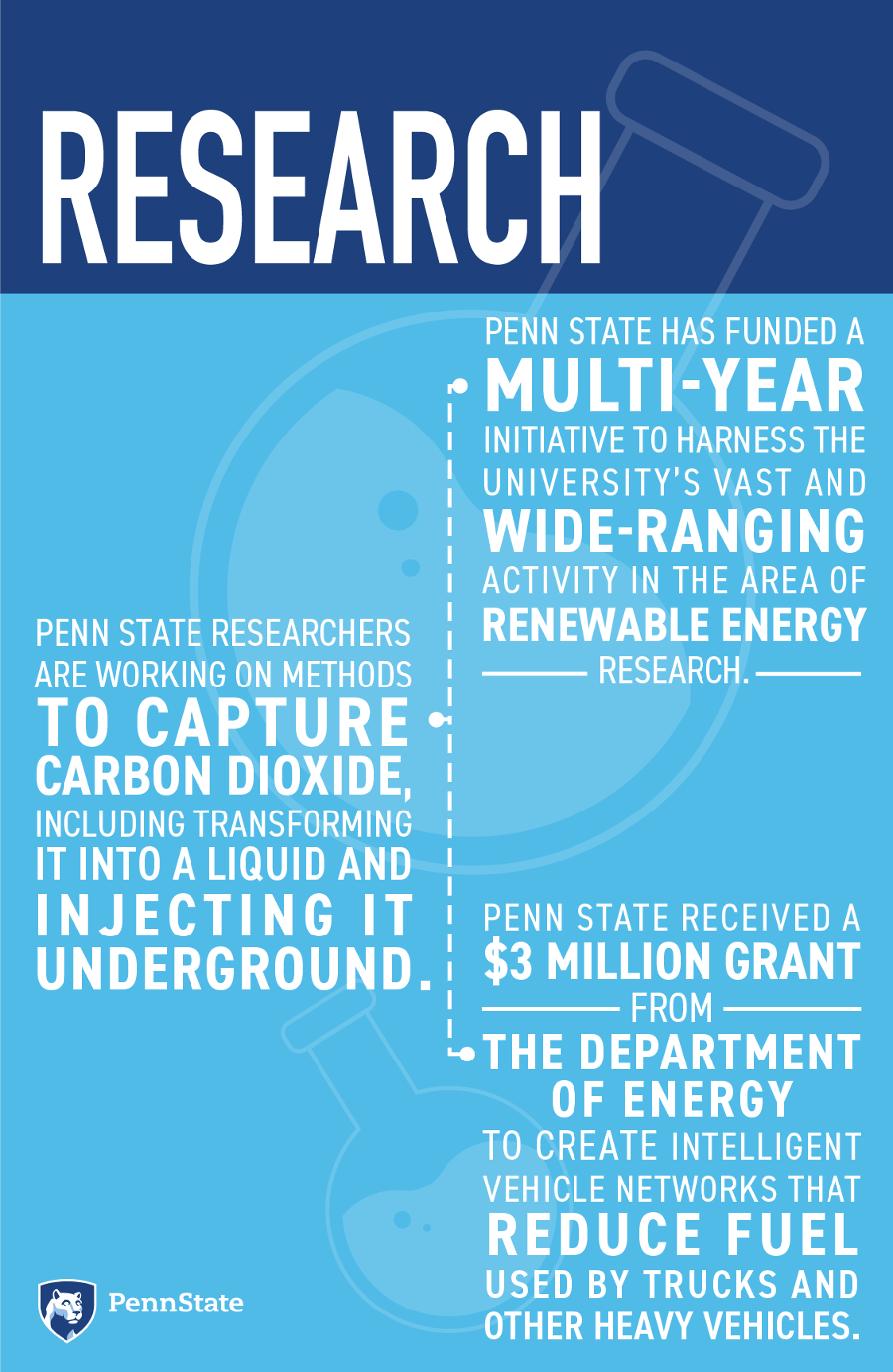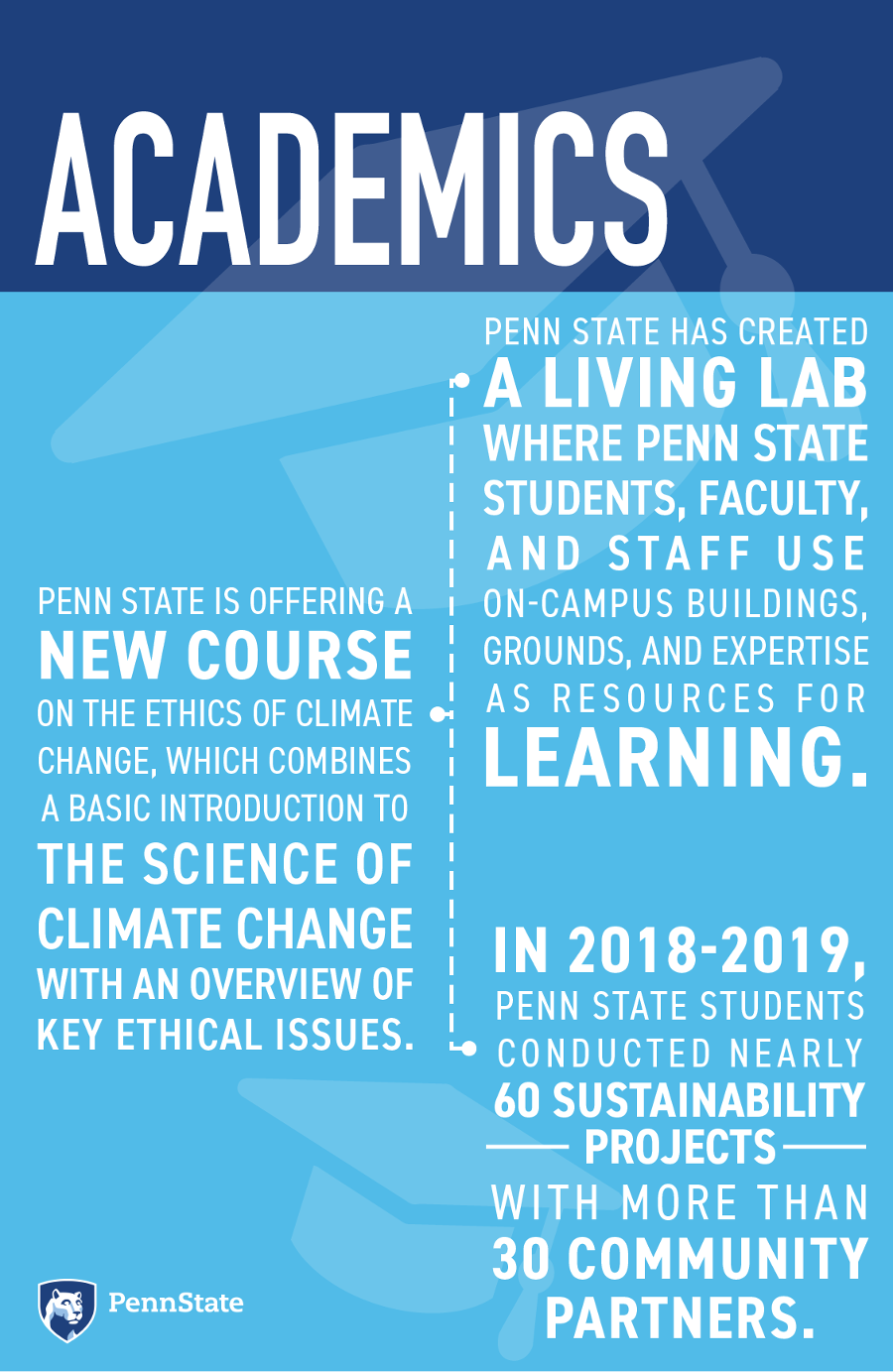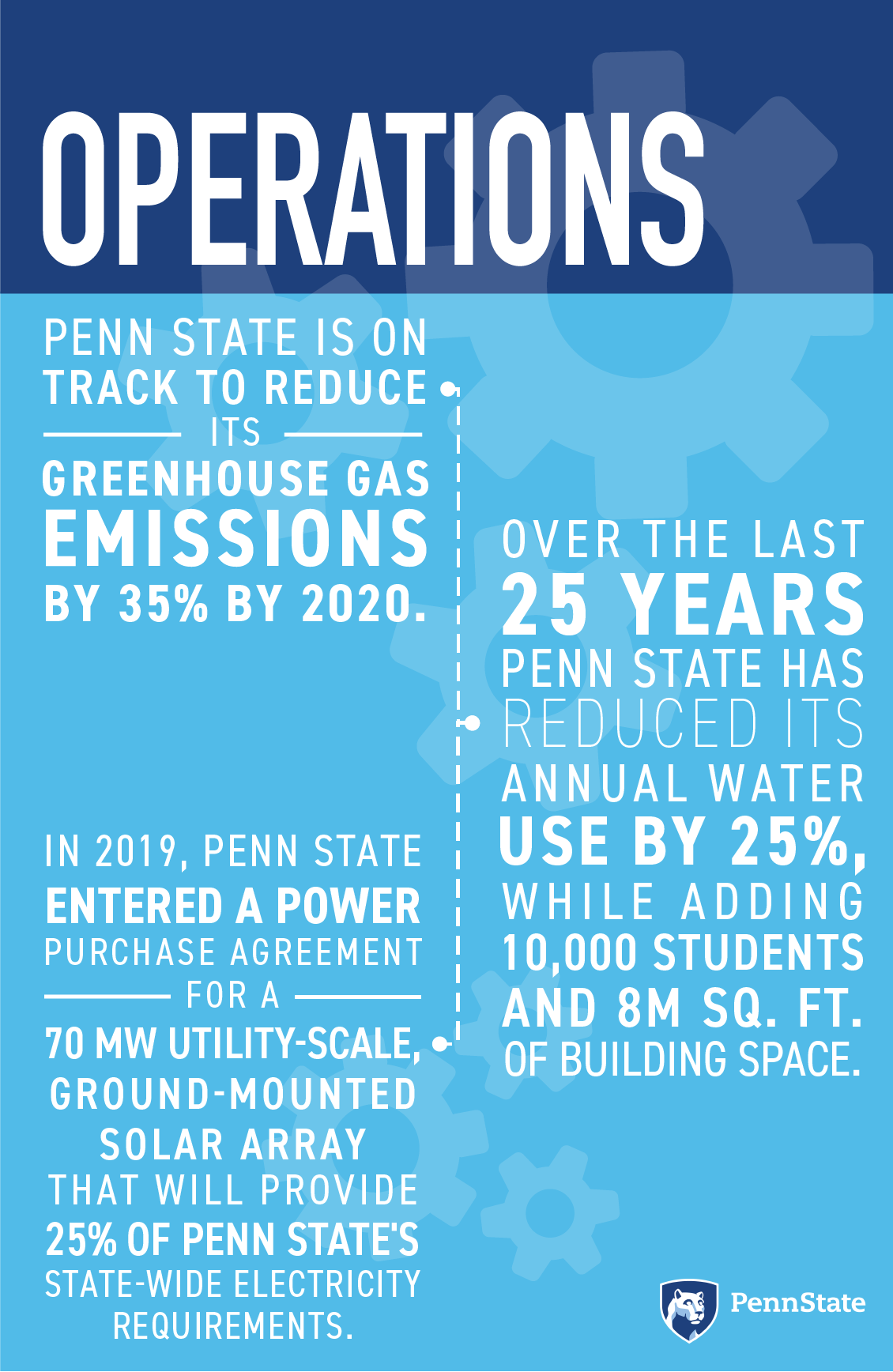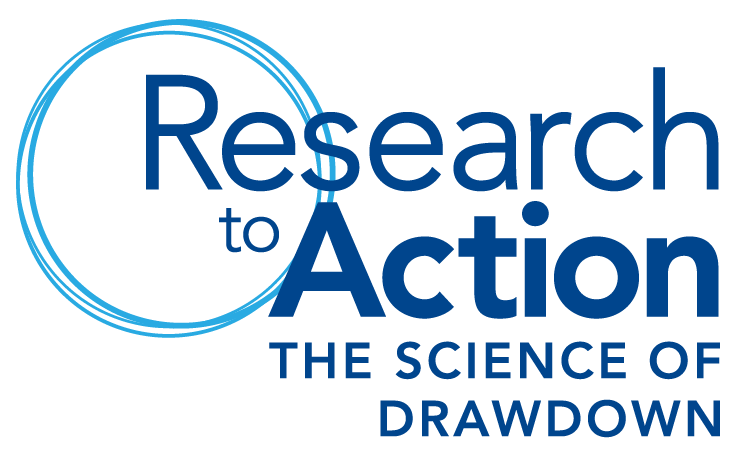Making farming better is good for everyone, including farmers. These improvements to farming can reverse global warming and improve a farm's efficiency, profitability, and harvest. Read Better Farming Means a Better Climate.
Indoor air quality affects human health. By reducing the energy used to run ventilation systems, buildings can become healthier for the occupants as well as the environment. Read Inside Out: Buildings and Climate.
Creating stable, efficient, and clean gas turbines have an important role to play in addressing climate change. Read Engines: Clean, Efficient, Stable.
A study looking at the dairy sector in agriculture revealed some "udderly" astonishing data that could lead to a significant reduction of the planet's future warming. Read Burping Cows: Researching How Farms can Help Cool the Planet .
Penn State has been working for years, successfully, to reduce its carbon footprint. But recently, the University has embraced a larger role: Be a leader in creating comprehensive solutions to mitigate the dangers of climate change. One method to do this is to teach students the science of climate change. Read Teaching the Ethics of Climate Change.
By investing my time in three key areas, education, policy, and the arts, I am working to change the energy mix, and therefore tomorrow's climate, through purchasing, policy, politics, pedagogy, and play. Read If the Climate is a Concert, What Part do I Play?.
I educate students on real-world implementations of wind energy applications, providing skills which are directly applicable to renewable energy project development as well as working with energy systems broadly. Read Renewable Energy Research and Education.
While working on a DOE-sponsored program, which was initially intended to promote the use of combined heat and power (CHP) technology in single buildings or integrated campuses, for the last seven years, it became apparent that a more universal implementation of the technology needed to be pursued. Read A New Energy Infrastructure Paradigm.
Electrochemistry is a foundation for our transition from fossil fuels to carbon-neutral life. Electrochemistry is the basic science underlying batteries, solar cells, fuel cells, and the conversion of CO2 into useful products. This science is necessary for us to seriously achieve a sustainable energy future. Read Electrochemistry’s Relationship to Climate.














